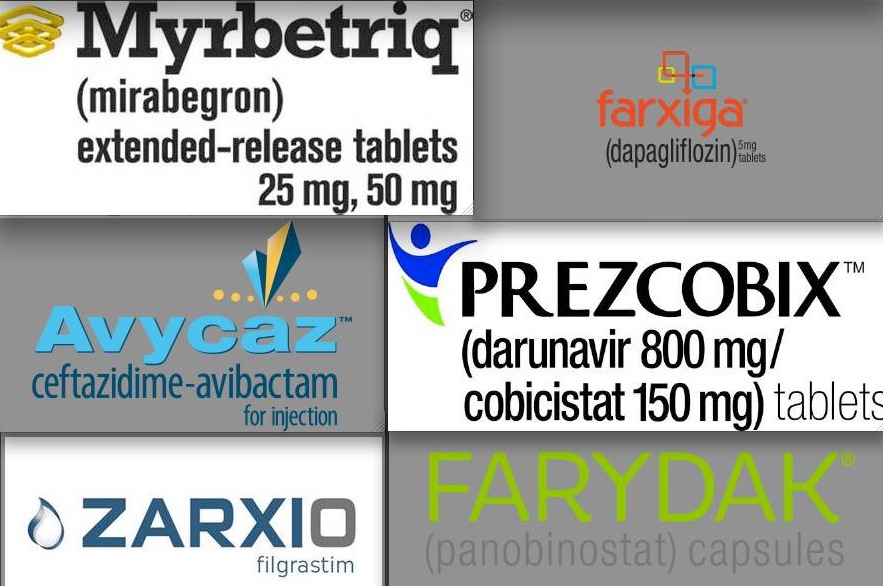Big Pharma is running out of drug names… and it’s about time!
12/01/2015 / By Norman Smith

If you watch TV at all, you’ve surely noticed that most of the commercials are for prescription drugs. This “direct-to-consumer” advertising has not always been legal, as explained by Mike Adams, the Health Ranger:
“This decision was made in 1997 and it allowed drug companies to place ads on television, in magazines, newspapers, billboards and other media with the purported goal of ‘educating’ consumers about prescription drugs…. The idea of pushing these drugs to patients so that they go to their doctors and request them by name is medically reckless. It has no medical basis whatsoever. It is clearly just a ploy that was approved by the FDA to financially benefit the drug companies at the expense of public health…. Many times, patients don’t even have any idea what these drugs do — they just see these images of happy, healthy people on television who have been hired to play roles in these drug advertisements, and the patients of course think they want to feel that way too, so they go to their doctor and request these drugs.”
So, that explains all the Big Pharma advertising. But, have you also noticed that all the new drugs have really weird names? Myrbetriq, Prexcobix, Farxiga, Avycaz, Xarxio and Farydak are just a few examples.
Why the weird names? Apparently, drug companies are now running out of brand names for their medicines. There are stringent rules that govern the naming of brand name drugs, so coming up with new names isn’t easy.
There are more than 10,000 generic drug names in existence, and the brand names based on those generic names are further based on stems that allude to their scientific roots. Drugs that are used to lower cholesterol, for example, typically have “statin” in their names.
Sponsored solution from CWC Labs: This heavy metals test kit allows you to test almost anything for 20+ heavy metals and nutritive minerals, including lead, mercury, arsenic, cadmium, aluminum and more. You can test your own hair, vitamins, well water, garden soil, superfoods, pet hair, beverages and other samples (no blood or urine). ISO accredited laboratory using ICP-MS (mass spec) analysis with parts per billion sensitivity. Learn more here.
The law prohibits brand name drugs from sounding too similar to each other. So, all the brand names for a particular generic drug have to somehow incorporate the generic scientific name, but not sound like any other brand of that same generic drug.
The law also prohibits any drug to have superior-sounding names, so a brand can’t be called “Superstatin,” “Stainpremier” or anything like that.
For marketing purposes, the manufacturer wants the brand name drug to be memorable and easy to spell, so the patient can tell the doctor to prescribe it. But, really, how easy is it to pronounce Myrbetriq? This, of course, is all for the good, because fewer patients will be able to tell their doctors to prescribe it.
It raises a larger question, however: Why should corporations be able to patent drugs as “intellectual property” anyway?
Again, according to Mike Adams:
“I support the immediate cancellation of all patents on life forms, genes, seeds and medicines. Those who ask, ‘But what is the incentive for people to create new medicines?’ That’s an example of limited Western thinking. Greed is not the sole motivator for innovation. Individuals, universities and governments can create new medicines for the benefit of all people. Besides, Nature has already invented nearly all the medicines we really need. All we need to do is propagate those medicines through the mindful planting and harvesting of medicinal plants.
“And if you really think only drug companies can come up with new medicines, then ask yourself this question: Why are 80% of all the ‘new’ medicines invented by Big Pharma just ‘me-too’ drugs that work no better than the older drugs with patents that are about to expire? Clearly, the motivation in Big Pharma today is not to create medicines for the benefit of mankind, but to create medicines for the benefit of corporate shareholders.”
Sources:
Tagged Under: drug names, Prescription drugs, statins




















